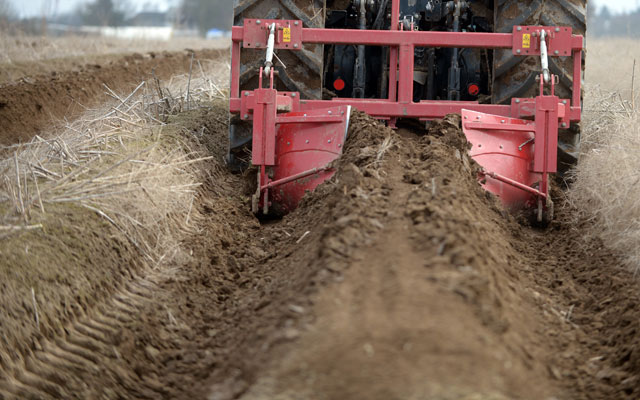Even Dr. Frankenstein would be shocked at how Congress is stitching together a bunch of different parts to bring its monster farm bill to life.
For decades, farm programs and food stamps have been combined to get farm bills passed. Legislators who support these unrelated programs have formed an unholy alliance to enact farm bills.
Something strange has happened though. A new farm bill has struggled to come to life. Given the fundamentally flawed House and Senate farm bills, this shouldn’t be much of a surprise.
But some in Congress may have found something to stitch to their nearly $1 trillion monster that will help get the farm bill passed, helping to maintain outdated agricultural policies and ignore common-sense reforms to food stamps.
Many counties, particularly in the west, are comprised mostly of federal land. Since federal land generally can’t be taxed, these counties are unable to generate tax revenue from this land to help fund basic services such as firefighting and emergency medical services that may even be provided to federal lands.
A Department of Interior (not Agriculture) program called Payment in Lieu of Taxes (PILT) provides compensation to local governments to help make up for this potential revenue. It was left out of the recent omnibus spending bill, but it is reappearing in the farm bill debate.
As might be expected, PILT is an extremely important program to western legislators. By adding it to the farm bill as has been reported, congressional leaders are creating a carrot that western legislators may feel they can’t pass up, even if they otherwise would have voted against the farm bill.
Congress would be adding yet another unrelated program to the farm bill. This approximately $400 million a year program could get more votes for a nearly $1 trillion bill.
This action is understandable given how fatally flawed any final farm bill is likely to be. Legislators should want to hide from the following:
- The House passed a modest 5 percent cut of $39 billion in food stamp spending, while the Senate passed a tiny cut of $4 billion—half of 1 percent. Media reports indicate that the House has “compromised” at about an $8 billion cut.
- President Obama has proposed agriculture cuts that are close to three times more than the House and Senate bills.
- Both bills increase the cost of the most expensive farm program, crop insurance, while President Obama would cut about $12 billion.
- Each bill would drive up food prices, such as by ignoring reforms to the sugar program that restricts the sugar supply.
Too many political games are already being played at the expense of agriculture policy and the nation’s food stamp program. Throwing PILT into the farm bill makes the problem even worse. Congress may have forgotten to include PILT in its spending bill, but that doesn’t justify using this omission as an excuse for adopting bad policy.




























